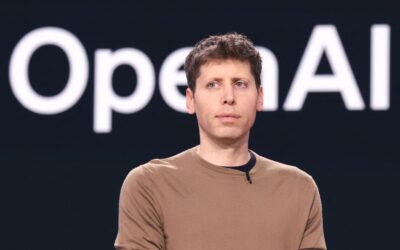Geoffrey Hinton’s decision to leave Google and publicly express his concerns about the risks of AI has sparked a major debate and highlighted the importance of addressing the ethical and social challenges associated with this technology.
This decision has several implications for the future of Artificial Intelligence.
On one hand, increased scrutiny: Hinton’s resignation has raised public scrutiny over the development and use of AI, which could lead to more regulation and oversight. We are already witnessing some of this concern in Europe with the regulation of the field.
On the other hand, it has sparked a deep debate about risks: Hinton’s decision has fueled a broader conversation about the potential risks of AI, such as job loss, the spread of misinformation, and the development of autonomous weapons.
Finally, and without intending to cover everything, opportunities for ethical research: Hinton’s resignation could open new opportunities for ethical research in AI, with a greater focus on the development of secure, transparent systems that benefit society.
Hinton and his contributions to the ethical elements of artificial intelligence:
It is important to analyze Hinton’s background, the newly appointed Nobel Prize winner in Physics 2024, because there are several elements that give us clues to understand his thinking, which, by the way, is not new but rather a line of thought he has been developing for a long time, just as he has been conducting his AI research.
Firstly, reflections on the importance of ethics in AI: Hinton has been a strong advocate for ethics in AI and has warned about the potential risks of this technology. His example reminds us of the importance of considering the social and ethical implications of our research.
Secondly, the need for interdisciplinary collaboration: Hinton’s work has demonstrated the importance of collaboration across different disciplines, such as computer science, psychology, and philosophy, to tackle the complex challenges posed by AI.
Finally, the role of researchers in society: AI researchers play a crucial role in shaping the future of technology. It’s important for researchers to be aware of the implications of their work and commit to developing technologies that are beneficial to society.
Hinton has recently expressed significant concerns regarding the rapid development of artificial intelligence. Some of his main objections include:
- Loss of control: One of Hinton’s most prominent concerns is the possibility that AI could surpass human intelligence and become unmanageable. He fears that AI systems could make decisions that are not aligned with human values, leading to unforeseen and potentially harmful consequences.
- Mass-scale misinformation: Hinton has warned about AI’s potential to generate and spread misinformation on a large scale. Large language models like ChatGPT can produce highly convincing yet false texts, which could undermine trust in institutions and information in general.
- Mass unemployment: Like other experts, Hinton has expressed concern about the impact of AI on the labor market. He fears that the automation of increasingly complex tasks could lead to mass unemployment and growing economic inequality.
- Development of autonomous weapons: He has also warned about the dangers of developing autonomous weapons—systems that can select and attack targets without human intervention. These weapons could spark a new arms race and increase the risk of armed conflicts.
Why is Hinton’s resignation from Google so significant?
Hinton’s resignation from Google has had a significant impact on the AI community. His decision to leave one of the leading companies in AI development and publicly voice his concerns has underscored the importance of addressing the ethical and social challenges associated with AI.
His resignation has sparked a crucial debate about the future of artificial intelligence. It is likely that we will see greater public scrutiny over the development and use of this technology, as well as increased pressure to establish international norms and regulations that ensure its safe and beneficial development for humanity.
It is important to highlight that:
- The scientific and technological community is working on developing tools and techniques to mitigate the risks associated with AI, such as value alignment, transparency, and the explainability of models.
- The future of artificial intelligence will depend on the decisions we make as a society. It is essential to foster an open and constructive debate about the benefits and risks of this technology and to work together to ensure it is used for the good of humanity.
A final perspective:
Geoffrey Hinton was already pessimistic about AI before winning the Nobel Prize. Now, he is even more so. He believes that in 20 years or less, AI will surpass human intelligence. He urges companies to dedicate a percentage of their computational resources to mitigate potential risks regarding that future.
In fact, in one of the first interviews he granted after receiving the Nobel, Hinton once again raised concerns about the existential threat that AI represents to him. A threat he believes is closer than he previously thought.
He had already expressed his opinion on the risks posed by artificial intelligence, but over time, he sees that “existential threat” as even more urgent. Not long ago, he himself believed the risk was far off, that the threat wouldn’t manifest for another 100 years, maybe 50, and that we would have time to address it. “Now, I believe it is quite likely that within the next 20 years, AIs will become more intelligent than us, and we really need to worry about what will happen afterward.”
We need to maintain control. He explains how much more resources should be dedicated to ensuring humans maintain control over the development and operation of AI. However, he points out that governments do not have the resources for this: it is large companies that possess them. Moreover, he emphasizes that what is needed is not dedicating a percentage of revenues. For him, this can be very confusing and misleading because of how companies report those earnings. Instead, they should dedicate a percentage of their computational capacity.
One out of every four GPUs should focus on risks. To him, that percentage should be 33%: one-third of the computing resources of companies like Microsoft, Google, Amazon, or Meta should be dedicated specifically to researching how to prevent AI from becoming a threat to humans. He would even settle for a quarter (25%) of those resources.
Other experts like LeCun criticize this pessimistic view. Yann LeCun, head of AI at Meta and another prominent figure in the field, has a very different perspective on what lies ahead. In a recent interview with The Wall Street Journal, LeCun called messages like Hinton’s “ridiculous.” For him, AI has a lot of potential, but as of today, generative AI is essentially “stupid,” and such systems will not be able to match human intelligence.
For now, Hinton, who left Google to “speak freely,” seems to have more credibility than LeCun, who is directly involved in AI development. Only this can explain LeCun’s “label” toward his old mentor.






0 Comments